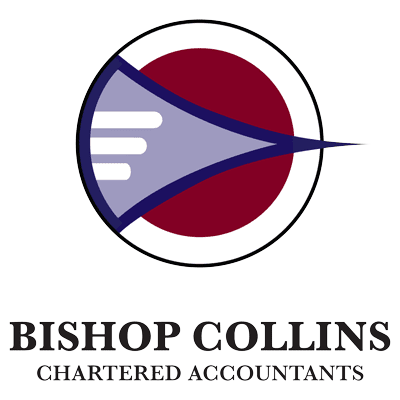“Tomorrow is the first blank page of a 365-page book. Let’s write a good one.”
Brad Paisley
This quote seems to sum up what I have been experiencing from my clients at the moment. The current challenges we have faced these last few years have made many reflect on what is important and what we want to do about it. For some, it is changing how they do what they do, and for others, it is making a change in what they do.
There has been an increase in people asking about setting up a new business or a side hustle and asking for advice on what to do. So my first bit of advice to a starting entrepreneur is to surround yourself with people that will inspire you and challenge you while supporting you with options, not just problems.
I am a Chartered Accountant and an Entrepreneur, so I like lists, and I also like to consider many aspects of a business. So let’s start in order of priority and timing.
What is your reason or purpose?
Starting a business takes a great deal of effort, responsibility, and commitment. If it is not thought through carefully, there are not only financial losses that can occur but also personal losses in terms of time, reputation and sense of achievement.
Discussing the reason for starting a business sets the scene for all the elements and decisions that have to follow. If a clients reason for setting up a business is not strong, I would suggest that they do more research and consider a broader range of options such as improving what they do now.
Making sure you have enough capital; enough energy, commitment, and demand for your offering are essential elements.
Is there demand?
It is essential to make sure you have researched the products or services your business provides and that there is proven demand in the market for your product or service. However, suppose there is no demand because it is a new product, service, or idea. In that case, there are some other critical issues to discuss, such as funding and Intellectual Property IP protection and those are not covered in this article.
Complete a business plan with your advisor
A business advisor can be a family member, a friend or a paid advisor or a combination of all these. Even our mate Google has some great resources to help you.
It is probably one of the most annoying things for an entrepreneur to be told when all they want is to just get on with it and start making money. I have placed it second as, in my view, it is critical.
It is not important to figure everything out, have an answer for every aspect of the Business plan and have it completed bound and looking fantastic on the bookshelf. Instead, it is essential to make sure many aspects of the business are considered before making decisions that will affect your business. A business plan is never completed and continually adapts and changes as your business evolves.
A good business plan is simple but effective and should cover the following:
- The Business –
- Structure
- Management and Personnel
- Products and service
- Insurance, Risk and Legal
- Operations
- Strengths Weaknesses Opportunities and Threats SWOT– Analysis
- The Market
- Market research – Demand for your product or service and your demand location, whether local, regional, national or international.
- Competitor Analysis
- Advertising and Marketing strategy – How will you let your customers know about your products and services
- The Future
- Goals and objective setting
- Action plan – Who will do what and when
- The Finances
- Revenue projections and targets
- Cost estimates
- Cashflow – When will the business make a profit, and when will it start to have excess cash
- Funding – How much is needed, and how will you get it.
If you want an easy starting point for your business plan, you can download our business plan template here: Business Plan Template
Structure, Structure, Structure
The reason why the first thing I ask is, “what is the purpose of setting up a business” is not only to understand the clients’ goals and motives but also to understand which structure they should operate their new venture under.
Is it a Not for profit, a Company (Private, Public Listed or Public Limited by Guarantee) or a Trust, or as an Individual Sole Trader or a Partnership. This can be decided on after discussing the purpose and then centres around three areas: risk management, operation requirements and minimising any tax burden.
Let’s look at some examples.
Example 1 – John single has no children and wishes to run his own domestic Cleaning business without any employees. He is not expecting to make more than $70,000 in revenue in a year. This would generally lead me to suggest he should operate as a Sole Trader to keep set up and ongoing costs down. Risk is low and can be managed with insurance.
Example 2 – John now wants to work with his brother, and the amount they will earn will not be more than $140,000 in revenue. No other employees. We would then recommend a partnership or a company depending on Johns brothers personal situation.
Example 3 – Now consider John is married, has three children and has a full-time job that he will not be leaving as it makes him $250,000. He has researched the demand and wants to employ 5-8 people on a full-time basis doing domestic and commercial services. He expects to be making over $2Million in revenue in the first year and $250,000 in profit in the first year. He wants to do it with his daughter, who is 19 years old and his brother. The complexity and the level of risk have now just escalated, and the structure needs to adapt and evolve. We would then recommend that a company operate the business and that the company’s shareholders be Discretionary / Family trusts for John and his brother depending on the brothers personal family structure and goals.
The tax rate applied to taxable income amongst each entity must be considered in deciding on the structure. The individual and the partnership is from 0% to 47%; the company rate is between 26% and 30%. The Trust rate is from 0% to 47%. There would be wide variations on the possible tax effects and the potential Capital Gains Tax if the business were sold at a substantial profit. Getting the structure correct can result in significant savings.
This stage requires a professional advisor who can advise you and set up the correct entity with the proper legal documents such as the Company constitution or Trust Deed that will allow flexibility, risk management, and tax minimisation.
Registrations, Insurances and Banking
Registrations
You may need to register your business for a number of tax obligations. The above points will direct you to what you need to register for. The most common tax registrations businesses need a tax file number or TFN, an Australian business number or ABN, goods and services tax or GST, pay as you go withholding (PAYG), and fringe benefits tax or FBT. If you’re registered for GST, you can also register for fuel tax credits. Applications for most tax obligations can be completed and lodged online.
To highlight some of the business registrations you may need when starting your business, we have created a couple of examples for you to refer to.
Jason’s Landscaping Business
Jason started his own business as a landscape gardener. He does most of his work on-site and in his workshop.
Jason doesn’t need a separate TFN because, as a sole trader, he uses his individual TFN.
He needs an ABN as he will register for GST and needs to quote an ABN when dealing with other businesses.
He plans to work alone initially and hire employees later in the year.
To do his job, Jason sometimes uses machinery such as a whipper snipper, ride-on lawnmower, and a generator which requires fuel. As a result, Jason may be able to claim fuel tax credits and is required to be registered for both GST and fuel tax credits.
Mary’s Sunny Café
Mary started her own business, The Sunny Café.
At the same time, she created a company, Sunny Cafe Pty Ltd, through which she runs the business.
The company needs a separate TFN.
It also needs an Australian Company Number or ACN.
And the company needs to apply for an ABN as it must register for GST.
As Mary will be employing staff, Sunny Café Pty Ltd must register for PAYG withholding.
Mary plans to have private use of a company car, which is a fringe benefit. If FBT is payable on this benefit, the company must register for FBT.
There are a lot of things to consider when starting a new business. Business registrations are just one aspect to consider when setting up.
Insurances to consider
When considering insurance, the most common types of insurance to consider are the following:
- Public Liability – Public Liability covers your legal liability to pay compensation for injury or damage to property caused to a third party in connection to your business. For example, if a customer slips and trips while on your business premises.
- Indemnity Insurance – Indemnity, on the other hand, protects against the risks associated with providing advice or recommendations to clients or for any actions performed by your services. For example, a customer could sue you for damages if it’s alleged that your advice has caused a loss.
- Products Liability – Product Liability insurance protects your businesses against claims by third parties relating to property damage or personal injury caused by your products.
- Workers Compensation – A Workmen/Workers Compensation policy covers the statutory liability of an employer for the death, disability and bodily injuries of his employees caused by accidents. So if you’re business employs people in NSW, you need workers compensation insurance.
- Other types of insurance to consider are Keyperson Insurance / Life Insurance in the event that a key person death or removal from the business due to ill health would cause considerable cost.
There are many other forms of insurance; however, it is best to speak to an insurance broker to understand all the areas of cover you can get and if they are necessary.
Banking
It may seem obvious, but once you have all your registration documents for the entity you will run your business through, you can open a bank account. Talk to your bank about which product you may need to help you manage your cash flow. Having a separate bank account to hold your Tax obligations such as GST, PAYG for employers, and superannuation is a wise step, so you don’t fall into the trap of accumulating a large Tax debt.
Choose a cloud-based accounting platform.
This is one of the final and most important steps. An excellent Cloud-based accounting program allows you to manage and keep track of your cash and tax obligations. They can help control who owes you money and who and when people need to be paid. In addition, they can manage your payroll responsibilities and make sure you keep up to date with tax changes.
As a cloud-based service, it also means that you can access your accounting program anywhere there is internet access. This is important in providing flexibility and functionality in today’s demanding and changing world.
Many of these programs connect with other management tools and apps, such as
- booking systems.
- timesheet management.
- Apps that help to provide on the spot quotes for jobs with costings of all materials and labour at your fingertips, allowing you to win work by providing quick quotes and
- Apps that allow you to go almost entirely paperless.
Make sure you speak with your Chartered Accountant to help you choose an accounting package that suits your needs.
Have fun and get that revenue flowing!
Always remember and connect back with why you wanted to start a business. It is not an easy path to take, but it can and often is a very rewarding journey, even if it may not bring you the millions you hoped for.






